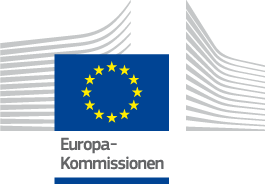

FLAG Factsheet
The Ebro FLAG operates on the Mediterranean coast, in the south of Catalonia. It borders with Aragon to the West and the region of Valencia to the south. The municipalities covered are located along the final stretch of the Ebro river, in the unique setting of the Ebro Delta. The most important port in the area is Sant Carlos de la Ràpita.
The economy of the area is characterized by a strong service sector, with tourism playing an increasingly decisive role; a limited manufacturing sector; and a primary sector where fisheries and aquaculture have an important role, behind the cultivation of rice and citrus. The area’s coastline is particularly sought after by tourists thanks to its un-spoilt nature and long sandy beaches offering its low density of visitors the tranquility and intimacy that few places enjoy.
The fishing fleet targets mainly pelagic fish, including tuna, while crustaceans and shellfish of different kinds are also very important. Just 20% of the fleet is small-scale, artisanal fishing. Aquaculture is also an important part of the sector, representing 95% of Catalonia´s mollusc production. Buyers in the main fish auctions, Sant Carles de la Ràpita and Ametlla de Mar, and are largely local, and significant volumes of the local produce are also sold in the nearby food city, Mercabarna, in Barcelona.
The main challenges of the area include the effects of climate change that seriously affect the area’s coastline as well as prompting the arrival of new, invasive species. Ensuring a balance between the main economic agents in the area and the generational renewal of the fisheries workforce are other significant challenges for the fisheries community.
Five of the seven municipalities covered by the FLAG are part of the Natural Park of the Ebro Delta, the most important wetland in Catalonia, with an area of 320 km2. Since 2013 is also recognized as a Biosphere Reserve.
The FLAG’s strategy is based on seven general objectives:
Regional
A call for projects is published each year. Each year, approximately half a million euro are available for local projects.
The Ebro FLAG is particularly interested in cooperation projects, both at the national level and at the transnational level – and especially around the Mediterranean. Our areas of work are related to aquaculture, cooperation with other FLAGs operating in deltas and biosphere reserves.
There are two LEADER LAGs operating in part of the FLAG territory: The Ribera d’Ebre i Terra Alta LAG and the Baix Ebre i Montsi LAG. While they are independent organisations, certain public members of the FLAG (municipalities and county councils) are also members of these LEADER LAGs. The FLAG expects to cooperate with these LEADER LAGs around the "Biosphere Reserve" brand.
Five fishermen’s organisations or “confrarias” (Sant Carles de la Ràpita, l’Ametlla de Mar, l’Ampolla, les Cases d’Alcanar and Deltebre); the Federation of Mussels Producers, FEPROMODEL; the town councils of the seven municipalities covered (Alcanar, Sant Carles de la Ràpita, l’Ametlla de Mar, l’Ampolla, les Cases d’Alcanar, Sant Jaume d’Enveja and Deltebre); the Natural Park of the Ebro Delta; The Alfacs Aquaculture School; the Sant Carles de la Ràpita association of marine tourism operators (NGO); and four local businesses: sea salt manufacturer, INFOSA; seafood processor, Angulas y Mariscos Roset; pesca-tourism company, Margalef Encinas and the sailing club, Serveis Nàutics Focus.